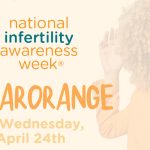What is Egg Donation?
Egg donation is the process by which a woman, who is usually younger, provides eggs (ova, oocytes) to another person and/or partner for purposes of assisted reproduction so that the recipient of the eggs can have a baby with partner or donor sperm.
How to Become an Egg Donor
You can select the practice at which you would like to donate your eggs through our website. ARC will then contact the practice regarding your interest in becoming an egg donor.
Egg Donor Requirements
Potential donors are first interviewed with a donor egg nurse coordinator. You may qualify to become an egg donor after meeting a series of criteria, which generally include:
- women between the ages of 21 to 32 (age range varies from practice to practice)
- height and weight within normal range
- no smoking or drug use
- previous delivery preferred but not essential
- filling out a detailed medical history form that covers your general health, such as surgeries, gynecological and family history
- comprehensive gynecological exam
- screening tests related to mental health, medical and genetic history, and sexually transmitted infections
Donors must prepare to miss several days of work for medical exams, consultations and the egg retrieval procedure.
The Egg Retrieval Procedure
An egg retrieval is a minor surgical procedure performed with mild anesthesia. After the woman has had stimulation of her ovaries with subcutaneous injection of gonadotropin drugs for about 10 days, the follicles in the ovaries increase in number and enlarge in size so that a majority of the eggs are mature. A small needle is passed with ultrasound guidance through the vaginal wall into the ovary and each follicle is aspirated to retrieve the fluid from the follicle. The embryologist then looks for the egg in the follicular fluid. The entire procedure generally takes less than half an hour, has very little pain and the woman can return home about an hour after the procedure.
Why Become an Egg Donor?
The main benefit is the knowledge that you have helped another woman have a baby. Egg donors are also compensated for their time and effort.
What are the different types of Egg Donors?
Non-identified Egg Donors
Many women choose to be anonymous egg donors, so they donate their eggs to an infertile woman or couple who are unknown to them and they are unknown to the recipients. These donors are matched as closely as possible to the criteria specified by the receiving couple or woman. Historically, such donors were labelled “anonymous” donors. However, because of rapid increases in genetic technology and also the use of social media to find siblings and other relatives, it is no longer possible to guarantee anonymity and so every egg donor has to appreciate that she might one day be identifiable by a recipient of the eggs or the resultant offspring.
Identified or Directed Egg Donors
In some cases, the egg donor is a sister, friend, or relative of the recipient. Some women and couples recruit donors on their own. The term “known” donor has now been replaced by the terms “directed” on “identified”.
Regardless of the type of egg donor, all must go through the counseling, legal documents, screening and testing.
If you are interested in becoming an egg donor, please complete the form below and we will share your information with an ARC clinic in your area.






